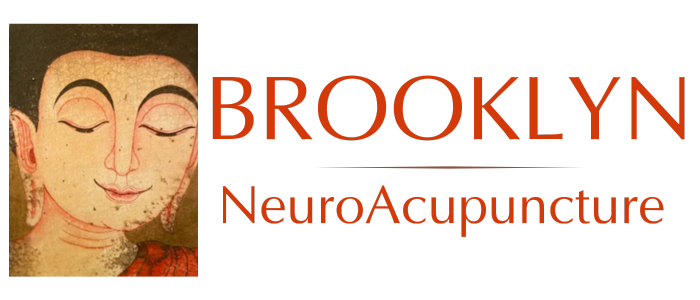Auricular Electro-Acupuncture for Vagus Nerve Stimulation
The vagus nerve is a primary component of the parasympathetic nervous system, which controls crucial bodily functions including control of immune response, mood, digestion and heart rate. As the longest nerve in the body it is the 10th of 12 cranial nerves, it contains both sensory and motor fibers.
The vagus nerve, known as the Wandering Nerve, has right and left side branches; after reaching your brainstem the vagus nerve travels to the neck, the thorax and into the abdomen. Its innervation of the LUNGS controls the muscles of throat, larynx; aka “voice box” and pharynx and the action of swallowing and gag reflex.
As it innervates the HEART; the vagus nerve aids in slowing down heart rate and blood pressure when confronted with stress, anxiety or fight or flight responses. As it reaches the STOMACH, SMALL & LARGE INTESTINES, the vagus nerve activates peristalsis of the stomach and intestines. In the PANCREAS it activates secretion of digestive enzymes and regulates insulin secretions. Innervating the LIVER, the vagus nerve cholinergic signaling regulates inflammation in the GI tract and the liver.
As part of the parasympathetic nervous system, the vagus nerve plays a role in the body’s response to stress and traumatic experiences. Chronic anxiety and traumatic experiences suppress the parasympathetic nervous system triggering a “fight or flight" response thereby dsyregulating the nervous system.
The vagus nerve has an auricular branch that innervates the skin of the concha of the ear. In clinical trials, electrical stimulation of the cymba conchae, fossa triangularis or inner tragus yielded strong clinical results.
Conditions Treated with Ear Acupuncture E-Stimulation of the Vagus Nerve:
Anxiety
Depression
Panic Attacks
Hyper vigilance
OCD
PTSD
Difficulty Swallowing
Insomnia
Hypertension
Parkinson’s
Essential Tremors
Stroke Patients
Mental Health &Mood Regulation
Weakened Immune System
Gut Microbiome Dysfunction
Gastroparesis
IBS
IBD

